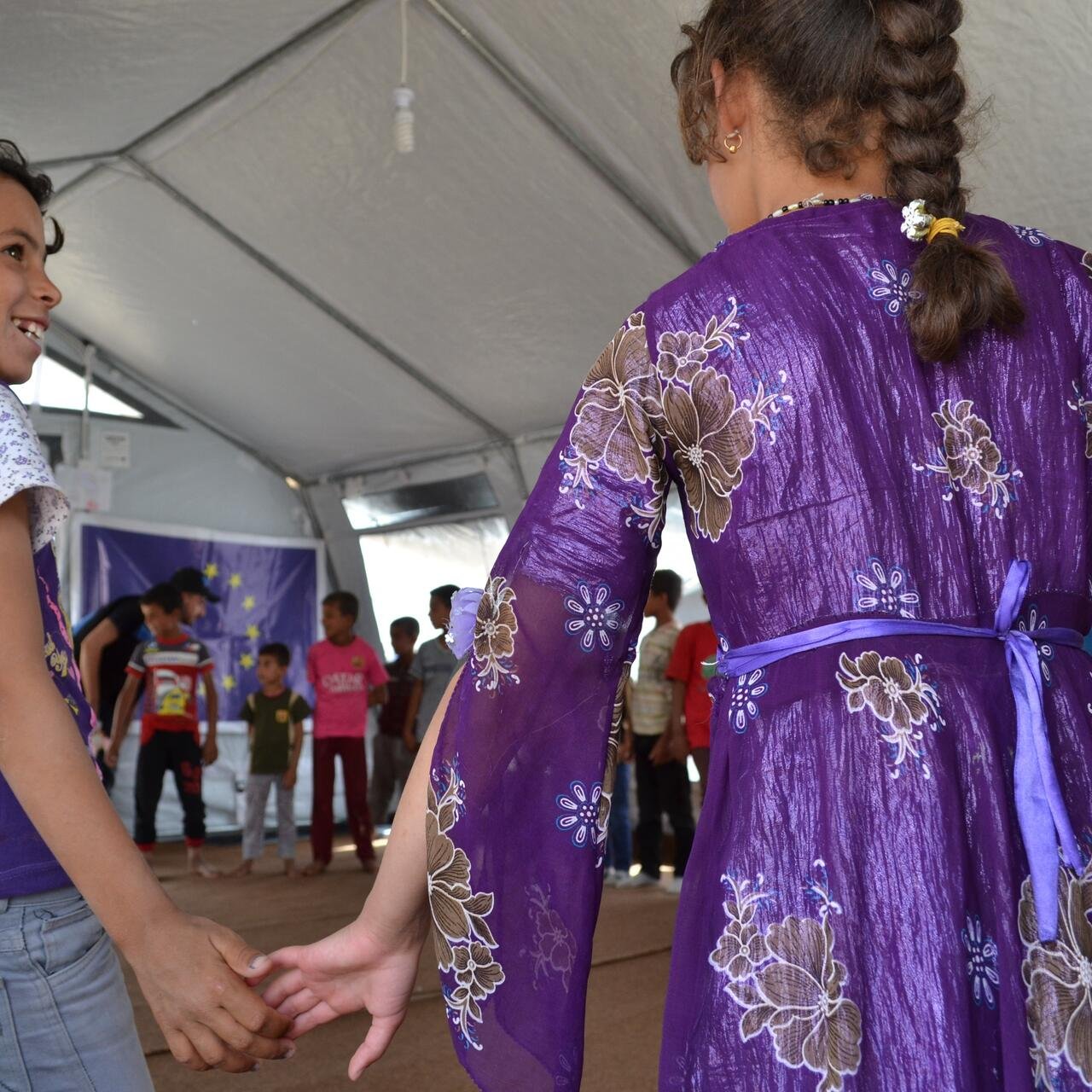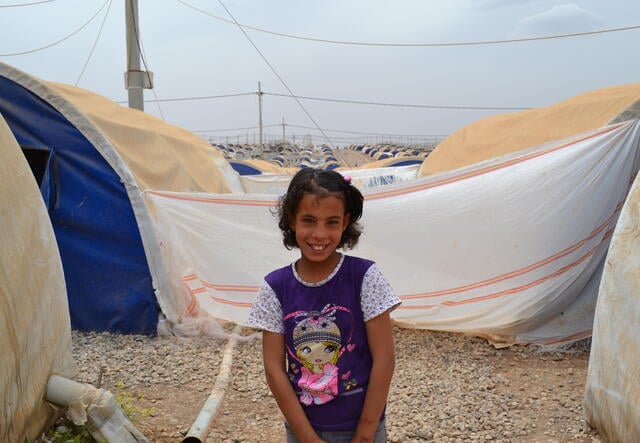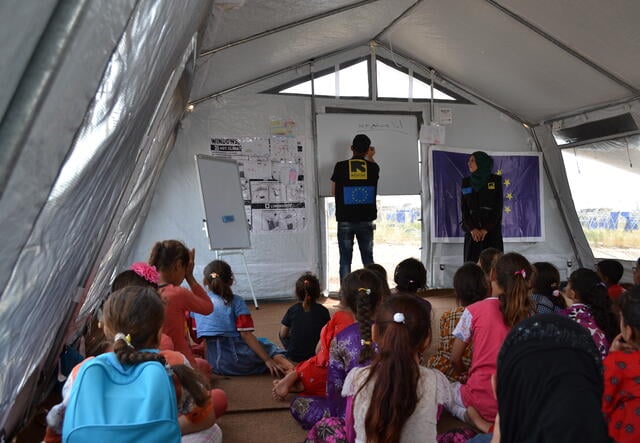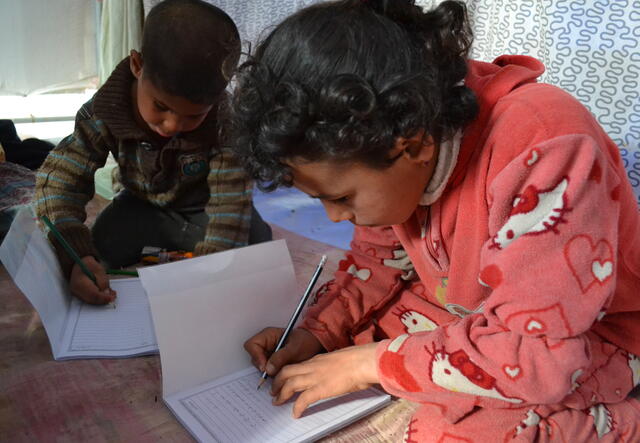
Despite her young age, 11-year-old Farah* has gone through more traumatic experiences than most people should in a lifetime. In 2014, her family was forced to leave their village on the outskirts of Mosul and move to the east of the city, where ISIS was gaining control. A few months later, Farah’s father died. She then spent two years with her family living under the harsh rule of ISIS. She has never been to school.
“I barely let my children leave the house—to keep them away from ISIS,” Farah’s mother Yasmin* explains. “ISIS played with children’s brains.”
As the battle to retake Mosul reached their neighborhood, Farah’s family undertook a perilous journey to find safety.

“We were starving in Mosul,” her mother Yasmin explains. “We told ourselves, ‘If they shoot us, then so be it.’ We had nothing—no water, no food.”
ISIS placed mines and booby traps in neighborhoods and surrounding areas to keep people inside the city and even used them as human shields.
“There was one person in the neighborhood who knew where all the mines were, and who could keep us safe as we escaped. But he charged money, and we didn’t have any. So we had to risk it alone,” says Yasmin.
“When we ran we didn’t know where the bombs were in the ground; we didn’t know where we could put our feet. We didn’t know the way to go to reach the Iraqi army. We stepped on the footsteps of the people that had fled before us,” she recalls. “I was so scared.”
Somehow, Yasmin and her children made it out alive. Her extended family tried to flee as well, but they were not as lucky. “We told them which way to go, which way was safe. But three of them were killed by a mine. The rest turned back. At first ISIS didn’t let them bring back the bodies. They stayed in the open for three days and only after that were they able to bury them.”
Finding safety

Today Farah lives with her mother and six siblings in a tent—identical to the thousands of others that make up Nargazilia camp. As summer temperatures rise toward 50 degrees Celsius [122 degrees Fahrenheit], it’s too hot to go outside. This means it’s hard for Farah to meet other children and break the monotony of living in a camp.
As an escape, each day Farah and her six-year-old brother Youssef* spend time in the IRC’s safe and healing learning space.
“The safe space is designed to provide children aged six to 11 with the chance to forget their worries, to play and to just be kids,” explains IRC child protection and education coordinator Mary Winters. “Boys and girls take part in activities and games designed to help them to process the trauma that they have experienced over the past three years and give them the tools to recover and build up their resilience for the future.”
“I really like the teacher,” says Farah. “I learned that I should be nice to my brothers and sisters and to not fight with them.”

Many children like Farah that have lived under ISIS rule have often seen things that no child should have to see.
“Even now in the camp we still carry this fear with us,” explains Farah’s mother, Yasmin.
Since Farah and Youssef have started going to the IRC’s safe space, Yasmin has seen their behavior change for the better.
“Now Youssef makes everyone laugh,” she says. “He’s always telling us that we have to go and wash our hands before we eat food—something that he learned there.” She adds, “Farah knows exactly what time the activity starts and is always there on time so she doesn’t miss a single minute.”
The International Rescue Committee works across Iraq providing relief supplies, education support, protection services and emergency financial assistance to displaced Iraqis, Syrian refugees and vulnerable locals. Supported by the European Commission’s Humanitarian aid and Civil Protection department (ECHO), the IRC is helping children to heal and overcome the trauma they have experienced.
*Names changed to protect identities